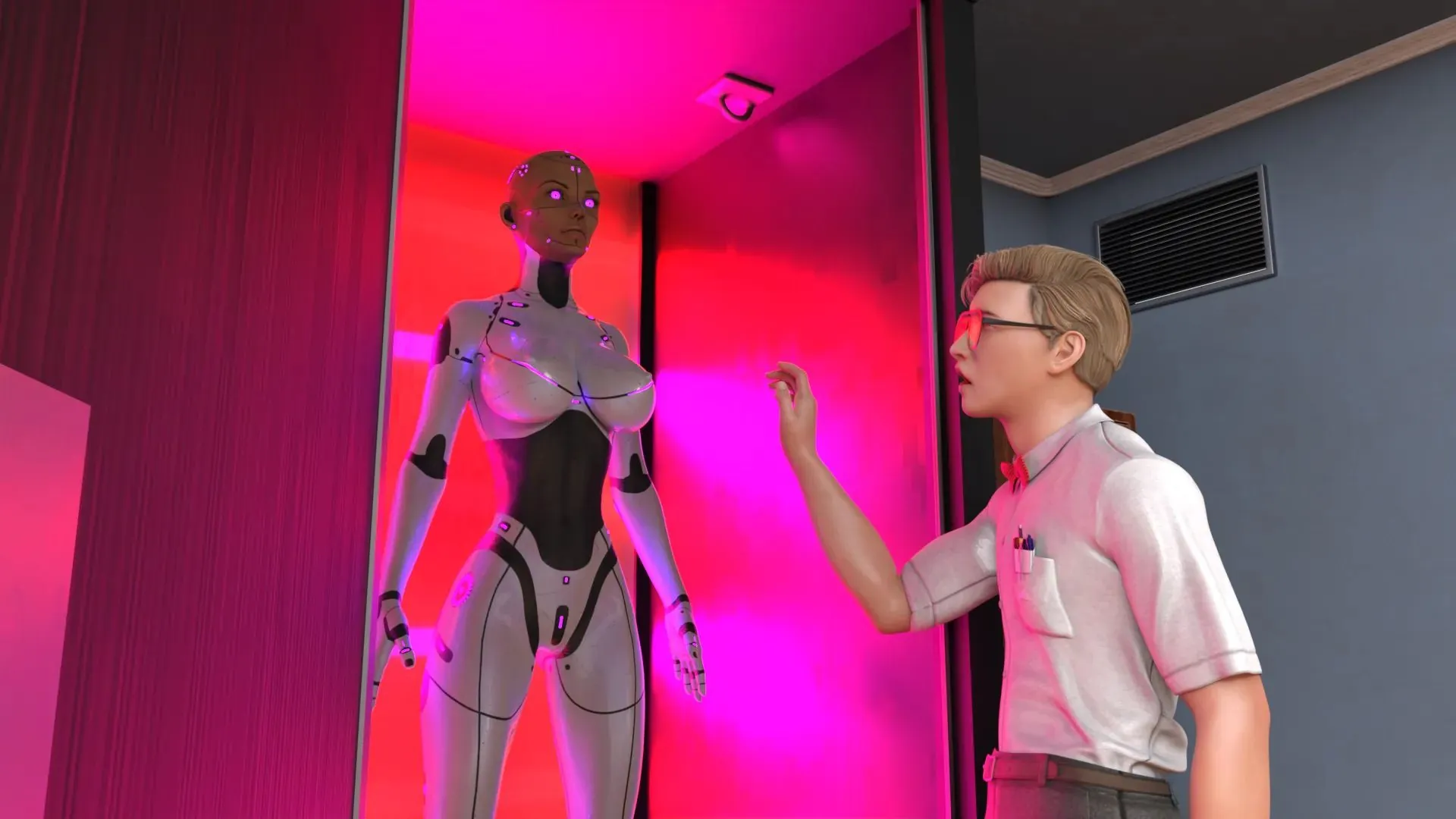
Something to Write About: The Author
Play Something to Write About: The Author
Something to Write About: The Author review
An In-Depth Look at ‘Something to Write About: The Author’ Interactive Experience
If you’re curious about ‘Something to Write About: The Author,’ this article offers a comprehensive exploration of the game, highlighting its unique interactive elements and storytelling approach. Designed to engage players in a distinctive narrative experience, this game stands out for its creative concept and immersive gameplay. Whether you’re a fan of narrative-driven games or looking for something new to explore, this guide will provide you with all the essential details and insights about ‘Something to Write About: The Author.’
Exploring ‘Something to Write About: The Author’ Game Features
What Makes the Game Unique? 🎮✨
Picture this: You’re stuck in a story where every choice actually matters. No more “illusion of control” or dead-end plot twists. Something to Write About: The Author flips the script on traditional storytelling by making you the co-pilot of its wild narrative ride. 🚀 Unlike other unique storytelling games that force you down a single path, this one feels like a choose-your-own-adventure book crossed with a Netflix series—where your decisions shape the characters, relationships, and even the ending.
Take it from me: I once spent 20 minutes agonizing over whether my protagonist should confess a secret or bury it forever. The game didn’t just acknowledge my choice—it remembered. Weeks later, that decision came back to haunt me in a way that felt as personal as real-life consequences. 😱 That’s the magic here. The interactive gameplay Something to Write About offers isn’t just about clicking dialogue options; it’s about crafting a story that’s uniquely yours, with layers that unravel like a well-written mystery novel.
And let’s talk about the writing itself. Most games treat dialogue like filler, but here, every line crackles with personality. You’ll laugh at the snarky comebacks, cringe at the awkward flirting, and maybe even tear up when tragedy strikes. It’s like the game gets you—and that’s rare.
Gameplay Mechanics and Player Interaction 🕹️💡
So, how does it all work? Let’s break it down. The game narrative mechanics here are built on three pillars: branching storylines, dynamic character relationships, and player-driven consequences. Think of it as a narrative sandbox where your choices aren’t just “good” or “evil”—they’re messy, human, and packed with shades of gray.
Here’s a pro tip: Pay attention to the player interaction Something to Write About encourages. You’re not just picking pre-set responses; you’re shaping personalities. For example, during a heated argument, I chose to deflect with humor instead of confronting the issue head-on. Over time, my character became known as the “class clown”—which opened up entirely new story threads I hadn’t anticipated. 🃏
| Feature | Impact |
|---|---|
| Dialogue Trees | Unlocks hidden character backstories |
| Relationship Meters | Affects alliances and plot outcomes |
| Mini-Games | Break up text-heavy scenes with puzzles |
💡 Try this: Replay a chapter and make the opposite choice. You’ll be shocked how much changes—like discovering a subplot about a side character’s secret hobby that’s never hinted at otherwise.
But it’s not all talking. The interactive gameplay Something to Write About blends traditional point-and-click elements with creative mini-games. One moment, you’re decoding a cryptic journal entry; the next, you’re arranging story beats on a timeline to fix plot holes. It keeps the pacing fresh and ensures you’re always engaged.
Visual and Audio Design Elements 🎨🎶
Let’s get visual. The visual design in Something to Write About is a love letter to indie graphic novels. Imagine watercolor backdrops that shift hues to match the mood—warm golds for nostalgic flashbacks, icy blues for tense confrontations. Characters are drawn with exaggerated features (think: expressive eyebrows that could win an Oscar), making every emotion pop off the screen. 🖌️
And the audio elements game fans rave about? They’re chef’s kiss. The soundtrack swells subtly during key moments, like a soft piano riff when two characters reconcile. Even ambient noise—a ticking clock, distant laughter—adds layers to the atmosphere. I still get chills remembering a scene where rain pattered against a window as my character finally confessed their guilt. It wasn’t just sad; it was cinematic.
Here’s what sets it apart:
– Dynamic lighting that mirrors the story’s tone
– Hand-drawn animations for major plot twists
– Voice acting so good, you’ll forget they’re not real people
Fun fact: The developers hired actual playwrights to write the dialogue. It shows. Conversations flow naturally, with pauses, interruptions, and all the awkwardness of real life. 🎭
Why You’ll Keep Coming Back 🔄❤️
At its core, Something to Write About: The Author isn’t just a game—it’s a playground for storytellers. Whether you’re a casual player or a narrative nerd, the Something to Write About The Author game features offer something fresh every time. Maybe you’ll replay to fix that one regrettable decision (cough letting the dog eat the incriminating letter cough), or maybe you’ll dive back in just to hear that haunting violin track again.
The bottom line? If you’ve ever wanted to live inside a story—not just watch it unfold—this is your ticket. Pack your bags, grab your pen, and get ready to rewrite the rules. 📖✨
In summary, ‘Something to Write About: The Author’ offers a compelling and immersive interactive experience that blends unique gameplay mechanics with rich narrative elements. Its thoughtful design and engaging features make it a noteworthy title for players seeking innovative storytelling in gaming. If you’re interested in exploring a game that challenges traditional narrative formats and invites active player participation, this title is worth your attention. Dive in and discover the creative possibilities it holds.










